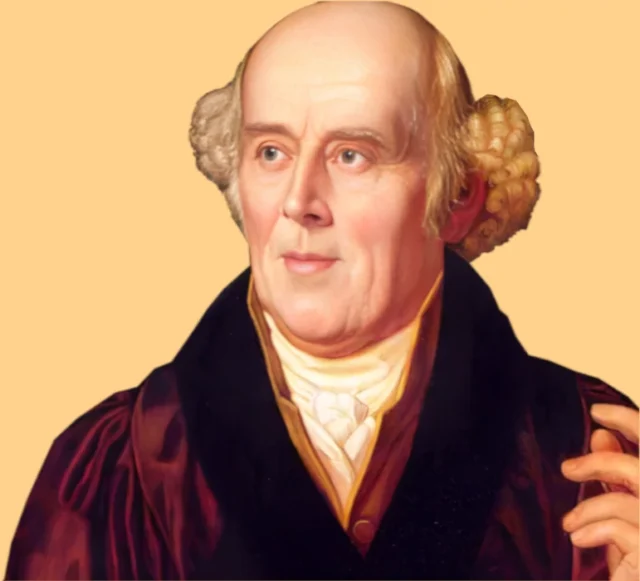
Dr. Samuel Hahnemann (1755-1843) was a German physician, chemist, and linguist, best known for founding the system of alternative medicine known as homeopathy. Born in Meissen, Germany, Hahnemann received a comprehensive education, studying medicine at the University of Erlangen and practicing as a physician in various locations.
Hahnemann’s life was marked by a deep commitment to medical knowledge and a desire to improve the often-harsh medical practices of his time. He was a vocal critic of common treatments like bloodletting and the use of toxic substances, believing they often worsened the patient’s condition.
He explored alternative approaches when he was not satisfied with the conventional medicines. A pivotal moment came when he translated a medical treatise by William Cullen, a Scottish physician. Intrigued by Cullen’s description of cinchona bark’s effect on malaria, Hahnemann experimented on himself and observed that the cinchona bark(also known as “Peruvian bark”) produced symptoms similar to malaria when taken by a healthy individual.
This experiment led Hahnemann to his central principle of “like cures like,” which he termed “similia similibus curantur” in Latin. This principle posits that a substance that causes certain symptoms in a healthy person can cure similar symptoms in a sick person when administered in a highly diluted form.
Hahnemann further developed his theory, introducing the concept of “infinitesimal doses.” He believed that by diluting and succussing (shaking) remedies, their potency could be enhanced while minimizing potential side effects.
He meticulously recorded his observations and experiments, culminating in the publication of his seminal work, “The Organon of the Medical Art,” in 1810. This book laid out the principles and practice of homeopathy, outlining its philosophy, methodology, and the preparation of remedies.
Hahnemann continued to refine and expand upon his theories throughout his life, attracting a following of physicians and patients who sought gentler and more individualized approaches to healing. He remained a dedicated practitioner and advocate for homeopathy until his death in Paris in 1843.
Dr. Samuel Hahnemann’s legacy lies in his groundbreaking contribution to alternative medicine. His development of homeopathy and its core principles offered a distinct perspective on health, disease, and the potential of natural substances to stimulate the body’s innate healing abilities. While the scientific validity of homeopathy continues to be debated, Hahnemann’s impact on the history of medicine and his enduring influence on alternative medical practices remain undeniable.
